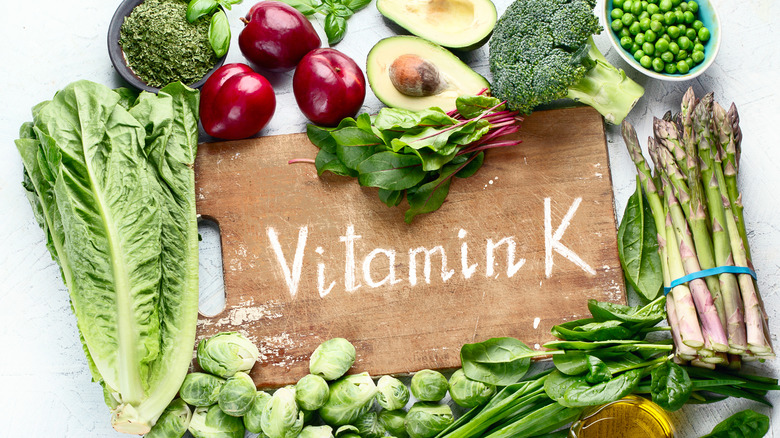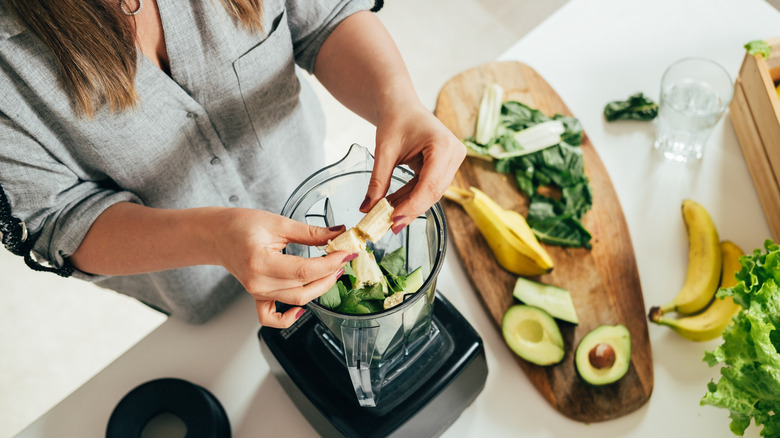You're Not Getting Enough Vitamin K If This Happens To You
Vitamin K deficiencies are often misunderstood. If you want to learn the signs of a deficiency, keep reading. We'll equip you to recognize the symptoms and address them.
According to Medical News Today, vitamin K is essential. We need it to clot our blood and balance blood calcium levels. This specific nutrient is fat-soluble, which means its stores are found in our liver and fatty tissues (yes, they do have a purpose). The body uses vitamin K to promote a healthy heart. It also improves cognitive health (including memory) in older adults. Our gut bacteria produce vitamin K on a small scale, but for certain people, that is not quite enough. When someone does not have enough vitamin K, that is considered a deficiency.
You may be curious about who is affected most. Professionals at Ada say that those most vulnerable are newborns, people with liver disease, and those taking certain medications. People with celiac disease or cystic fibrosis may also be at risk. Ladies, did you know that constantly having heavy periods is abnormal? Experts from Ada identify this as a warning sign of vitamin K deficiency. Other deficiency signs include easy bruising, small blood clots under the fingernails, and dark black stools, according to Healthline.
How to prevent or treat vitamin K deficiency
Vitamin K is a fat-soluble vitamin necessary for blood clotting and bone health. When someone has a deficiency, this simply means the body requires more of it. Body awareness is essential. We encourage you to attend to the small signs your body shows you. A lack of vitamin K shows up in the body as easy bruising and excess bleeding. If you have these symptoms, consult your doctor. They will perform tests to determine whether you are vitamin K deficient, and may prescribe medication, notes Healthline.
Most people can prevent a deficiency by eating a well-balanced diet. You can achieve this by adding foods full of vitamin K to your plate. According to Healthline, a few foods we love that are packed with vitamin K include broccoli, spinach, Brussels sprouts, avocado, and kale. In summary: enjoy more leafy green veggies.
Now if you're not a huge kale fan (we get it) then try hard cheeses, eggs, chicken, or beef liver. Add a bit of flavor to your dishes with dried basil, thyme, or oregano (per Medical News Today). Supplements are also an option to consider, but for specific advice, please see a health professional.

